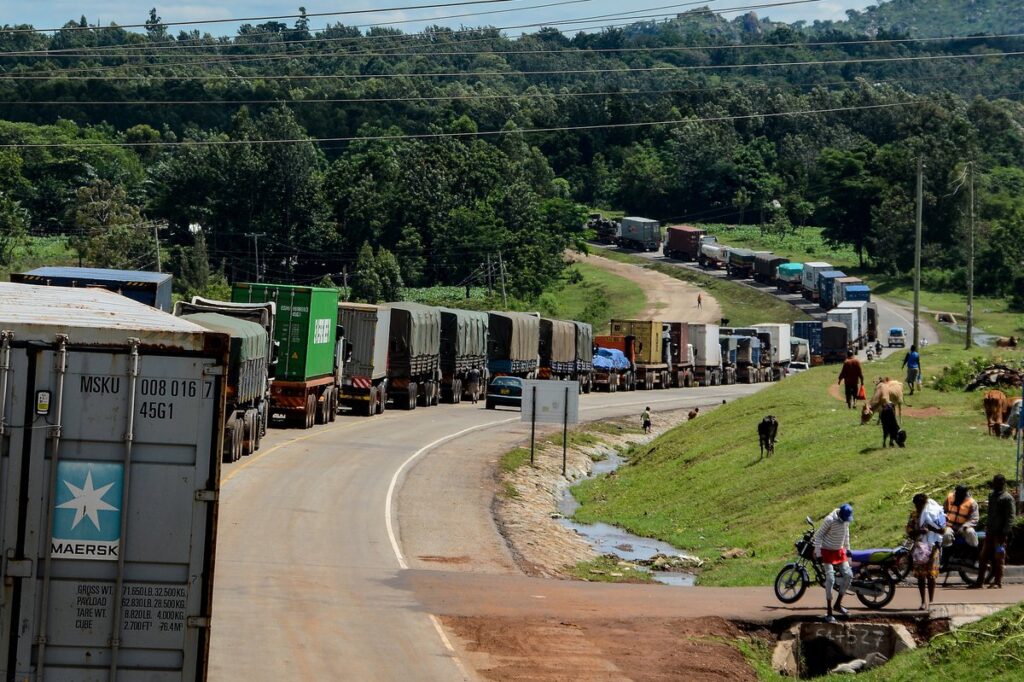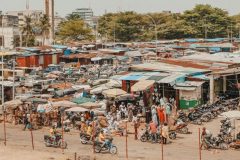This article was contributed to TechCabal by Uzochukwu Mbamalu, founder and CEO, Palremit.
According to Statista, Africa’s GDP per capita reached $2,150.6 in 2022—its highest value since 2015—and this figure is projected to reach $2,700 by 2026. This comes as no surprise, with the continent fast becoming a hub for technology adoption. With the recent trend of open borders seen across the continent, particularly in Rwanda, Kenya, Uganda, and Ethiopia, analysts have now predicted the continent to benefit more than ever from cross-border technology and knowledge transfer, the net present value (NPV) of skilled workers, labour quality, and intra-African trade.
Current state of open borders in Africa
Africa is witnessing a gradual shift towards open borders. Several policies and agreements are promoting regional integration and facilitating cross-border trade and mobility.
African Unioun’s 2063 vision
The African Union (AU), with the creation of the African Continental Free Trade Area (AfCFTA), has been actively promoting the idea of open borders. Their Agenda 2063 initiative seeks to establish a unified African market where people, goods and services can move freely.
Regional Economic Communities (RECs)
RECs such as the East African Community (EAC) and Economic Community of West African States (ECOWAS) were created to foster visa openness between member countries. This, in turn, facilitated easy transfer of skill, labour, and technology; as well as regional reciprocity.
RECs help by implementing open-border policies and regional agreements that encourage trade and mobility, which reduce fringes in mobility for net-positive skilled workers, and allow African collective economies thrive from new technology knowledge, access to financial technologies and infrastructure for cross-border remittance, tourism growth, and increase in communities’ economies through economic migration.
Proof of economic impact of open borders
Countries around the globe operate open borders amongst themselves (like the Schengen Area) to promote bilateral and multilateral diplomacy. Others do so solely to learn by knowledge, technology, and skill transfer; or to grow tourism. The biggest fear for open border policies have been the economic disparities that lesser-developed countries face when they open themselves up to African citizens from more advanced, developed countries. Countries like Singapore and Seychelles are testament to the economic miracle that open border policies have on nations that take the bold leap.
The Singapore “miracle”
Singapore has one of the best economies in the world, evident in its high GDP per capita value. Singapore operates a free market by opening itself as an exciting hub for enterprises to set up and grow thriving businesses.
Some might say Singapore landed its fair fortune given its ideal location for trade and logistics which has majorly attracted foreign direct investment from multinational corporations. But the truth is: its trade policies have also largely contributed to this.
Most African cities are ideal for foreign investment opportunities. Hubs like Lagos and Kigali are prime examples. Kigali has thrived on tourism and travel. And, with its recent open border announcement, it is expected to attract more talents.
Singapore’s open-trade policies have fostered its economic growth. This has led it to operate a diversified economy across manufacturing, finance, logistics, and technology.
African countries can learn from each other through more intra-African collaboration, and exchange more technologies between themselves. including fintech.
Singapore has a very attractive ecosystem for innovation and entrepreneurship. This is why it attracts foreign investment from high-value multinationals, including top-rig manufacturers in the energy industry.
Africa currently sits at the bottom as the continent with the lowest GDP per capita. This value doesn’t reflect the enterprising spirit Africans are known for. One way we can learn from open-trade policies is to identify ways the African continent can benefit from the economic benefits that African citizens bring.
Seychelles
Seychelles had the highest GDP per capita in Africa in 2022; the country has thrived from tourism, fishing, and agriculture.
Seychelles leads the way for the one of the most visa-free countries to travel to. A 2022 AVOI report showed that only 54% of intra-African travel are either visa-free or visa on arrival. If more countries, particularly in the southern and central African regions, begin to open up their borders to African citizens or set up more sophisticated processes for e-visas, this will facilitate more trade. MSMEs will benefit from transferred access to financial services by migrants, increasing their tax benefits for these countries. For instance, Flutterwave, Payoneer, Geegpay and Palremit offer a multi-currency swap feature that allows expatriates to exchange currencies with ease when they travel across the continent or overseas. This transferred access can facilitate more trade for agriculture, commerce, and other economic areas that move the needle in Africa.
Financial inclusion and open borders in Africa
The impact of financial inclusion on economic growth in Africa is multi-faceted. But, specifically, open borders will create a more extensive market for financial institutions, making it economically viable to reach underserved regions and communities in lesser-developed economies. For instance, African fintech providers like Flutterwave, Paystack, and Palremit are expanding into Sudan’s rural economy.
Secondly, migrants face the challenge of expensive cross-border remittance and lack of access to banking services (like access to credit and their credit history) when they travel. But with more expansive financial technology across Africa, migrants and rural communities can benefit from these technologies via foreign trades and easier means to move goods around and exchange currencies between suppliers and buyers at low fees, thus contributing to Africa’s financial inclusion dream.
Financial inclusion can be well established by facilitating digital financial services, education and literacy, public-private partnership, infrastructural development, and regulatory harmonisation across all African countries.
Future prospects
In the coming years, Africa’s economic miracle would be a testament to the power of leveraging and exploring regional integration to increase trade and foreign investment. The strategic implementation of these initiatives and the continued focus on overcoming challenges will be the keys to unleashing Africa’s full economic potential and fostering shared prosperity across the continent.




















